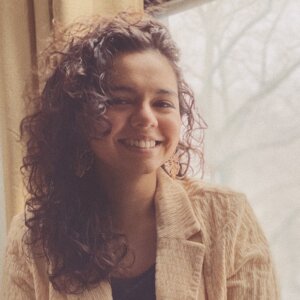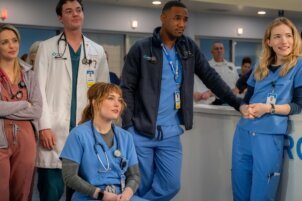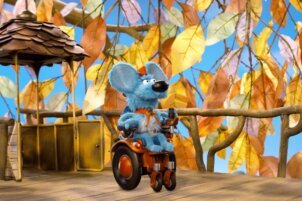
Isabella Vargas
New York, NY, October 6 – As part of RespectAbility’s reflection on Hispanic History Month, I interviewed Isabella Vargas, an apprentice in RespectAbility’s Entertainment and News Media department. She is an advocate for the disabled community and strives to bring more representation of Hispanic/Latinx/Latine people in the entertainment industry.
According to data from the Annual Disability Statistics Compendium, there are 3,420,356 working-age Hispanic/Latinx Americans with disabilities. Out of that number, 1,375,284 have jobs, putting their employment rate at 40.2 percent. At the same time, Hispanic/Latinx Americans without disabilities had an employment rate of 72.8 percent. That means there is a 32.8 percentage point gap in employment rates between Hispanic/Latinx people with and without disabilities.
These statistics are sadly amplified within the entertainment industry. According to the 2020 UCLA “Hollywood Diversity Report,” Latinos accounted for only 4.6% of movie roles in 2019.
Growing up as a Colombian/Venezuelan-American, Isabella did not see people who looked like her in front of and behind the camera. In our interview, she shared that she not only looks forward to helping increase Hispanic representation with her own contributions, but she also wants to make sure others who look like her are brought to the table for the same opportunities.
RespectAbility: How did you hear about RespectAbility, and what was your goal when you first heard about the program?
Vargas: I heard about this program through another organization called Women of Color Unite. It seemed like an amazing opportunity because I really wanted to learn more about disability advocacy and didn’t know how. I was also interested in learning more about media and entertainment, so this all around seemed liked the perfect combination for me.
My goal was to really find more community because I felt a little isolated as someone who is multiply disabled navigating spaces that weren’t built with me in mind. Not only did I find community, but I really grew as a person and as a professional.
RespectAbility: What has been your favorite assignment?
Vargas: I think I’ve gained a lot from every assignment. Even assignments that seem simple, like data entry projects, were super helpful to me because I had to chance to practice skills in an environment that was open to me learning.
I just felt comfortable sharpening skills all the time which is important to me. But, overall, I really liked assignments where I got to meet people. I liked interviewing people for articles, and I liked helping out with our Entertainment Lab because I met a lot of interesting creatives and professionals that way.
RespectAbility: As a Latina, how does your background bring perspective to the Apprenticeship?
Vargas: I think being Latina informs the way I think about disability advocacy because I’m always thinking about intersectionality and how things really don’t exist in a vacuum. I’m aware that disability is prominent in the Latinx community, but it is not represented or treated with the same urgency as in other spaces. I’ve always thought about how it also affects other issues like migration. I believe thinking about Black and brown communities is vital when you’re trying to represent the disability community.
At the same time, I think our community can be very ableist and misinformed. It can be lonely to be disabled in Latinx spaces because it’s simply not talked about. Our community tries to pretend disability doesn’t exist and that’s dangerous to all of us. I believe education and representation are crucial.
RespectAbility: How do you embrace your culture?
Vargas: I love the fact that I grew up in a very Latinx neighborhood and around a lot of Latino people of all cultures, including my own. I grew up speaking “Spanglish” and my friends would share pastelitos in school. Right now, I embrace my culture through food, music, and trying to always find more Latinx community here in NYC. I also always write, film, and think about Latinidad in my own creative work.
RespectAbility: Do you have any Latinx mentors or people you look up to?
Vargas: I look up to a lot of people I grew up with and people in my field who taught me a lot through an intersectional lens. When I worked in community advocacy, I looked up to leaders who were BIPOC because I knew I would learn the most from them. And, when I was working in film and television, I also looked up to women of color who seemed to always look out for each other.







